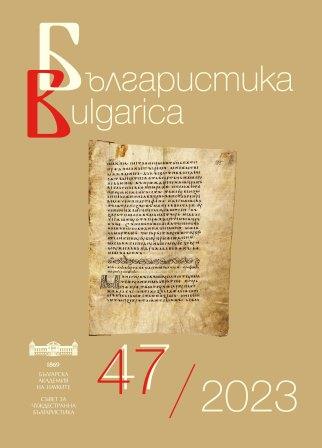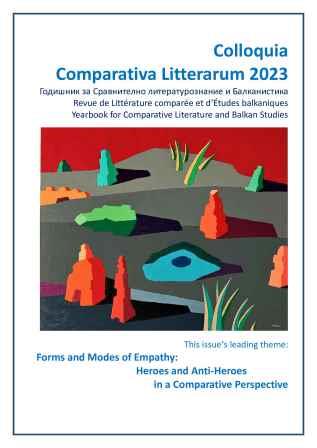
За книгата: Галин Тиханов. Световна литература. Космополитизъм. Изгнание. София, Кралица Маб, 2022, 428 с.
Book review: Galin Tihanov. World Literature, Cosmopolitism, Exile. Sofia, Kralitsa Mab, 2022.
More...We kindly inform you that, as long as the subject affiliation of our 300.000+ articles is in progress, you might get unsufficient or no results on your third level or second level search. In this case, please broaden your search criteria.

Book review: Galin Tihanov. World Literature, Cosmopolitism, Exile. Sofia, Kralitsa Mab, 2022.
More...
Book review: Vladimir Sabourín. Studies. 2023
More...
Book review: Angel V. Angelov. Philology, Literature and Symbolic Geography of Europe: Erich Auerbach, Leo Spitzer, Edward Said, Stefan Zweig, Hugo von Hofmannsthal. Sofia, Bulged, 2022.
More...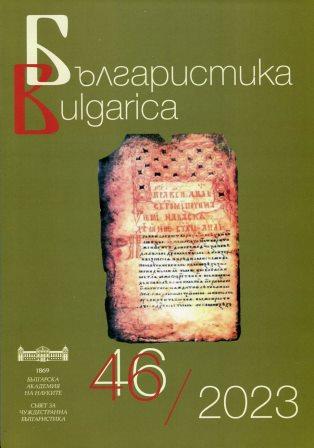
Defended PhD theses in Bulgaria in the field of linguistics, literature, history, folklore, ethnography and art studies.
More...







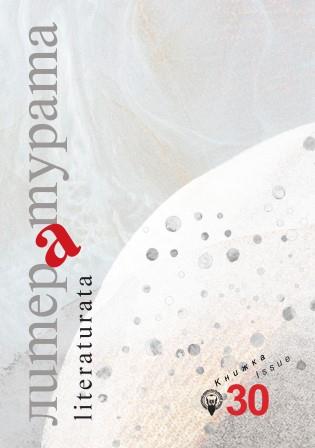
The text is focused on the problems of womanhood and motherhood in the literature, written by women in the former socialist states. It aims to explore the implications of the Soviet ideology and propaganda in the contemporary perceptions of gender and family roles and to answer the question about the importance of the remaining conservative traditional family values in the region. By exploring novels by female authors, the study tries to show the methods and tendencies in which women try to apply change through art. The main objects of analyses are the novels “Mrs. G.” by Emilia Dvoryanova and “Primeval and Other Times” by Olga Tokarczuk.
More...
Review of: Camelia Dinu (ed.), Simbolismul în literaturile slave, București, Pro Universitaria, 2020, 263p., ISBN 978-606-26-1233-7
More...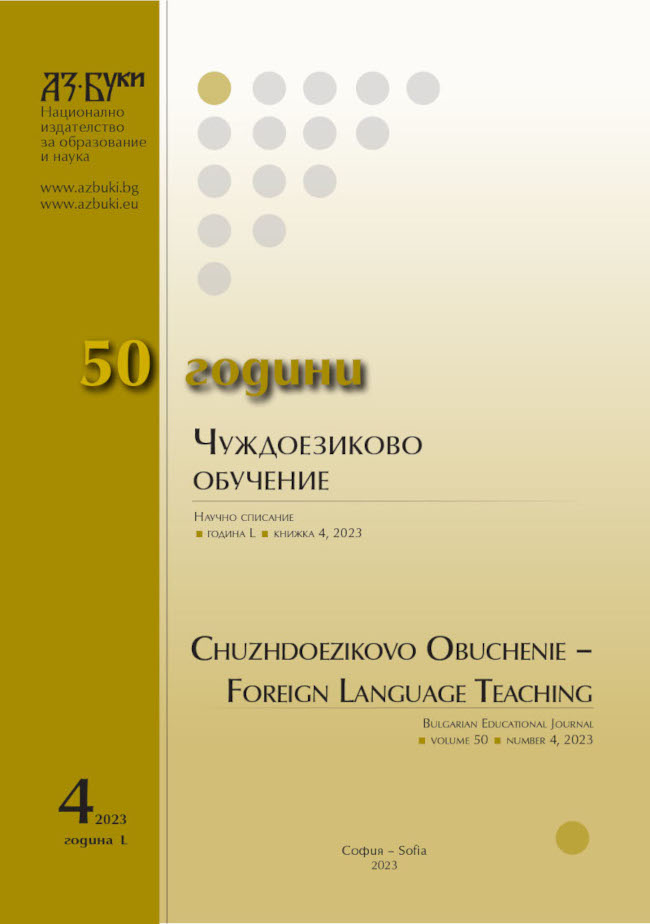
With the present article, we set ourselves the task of first looking at the event context in which the beatification of Father Paisius of Hilendar took place in 1962 when the state marked the 200th anniversary of the writing of Slav-Bulgarian History. The incorporation of Father Paisius of Hilendar into the ranks of the saints takes place in the context of the restoration of the patriarchal status of the Bulgarian Orthodox Church, resp. of Bulgarian-Russian political relations.
More...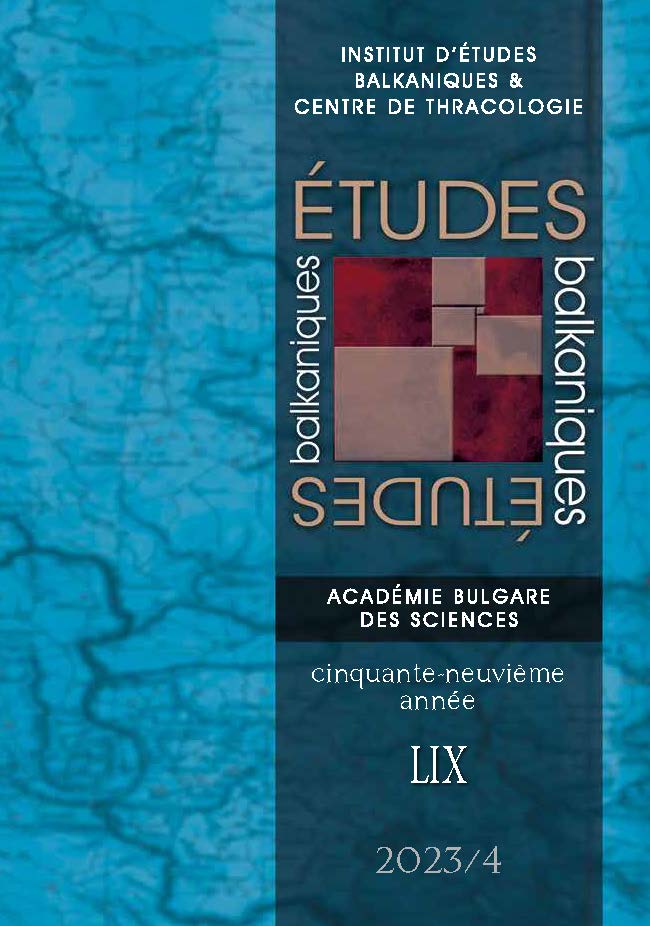
After completing his higher education in Romance/French Philology at the University of Sofia, and after having published his first award-winning books of poems, Latchezar Stantchev (1908 – 1992) won a scholarship from the Alliance française and continued his training in Paris between 1937 and 1939. With the acquired experience, the Bulgarian poet devoted himself to the translation of poetry in verse, both classic and modernist, from French and Francophone literature, including “La Chanson de Roland” and other masterpieces. The example of his verse translations contributed to the formation of contemporary criteria in the field of translation of poetry and literary texts into verse in Bulgarian. Latchezar Stantchev also contributed substantially to the rediscovering of Symbolism in Bulgaria, by translating works by Verhaeren in the midst of the dogmatic context of the 1960 – 80s behind the Iron Curtain.
More...
Albena Dimitrova (1969 – ), Bulgarian-born writer, poet and playwright, belongs to the corpus of « contemporary extreme » women writers who have chosen to express themselves in French, in the context of a migratory or exile situation, or out of an attraction to this language that represents the host country, France. In her novel Nous dînerons en français (2015) Dimitrova blends individual stories and major national events with extraordinary mastery. This work of autofiction bears witness to an era marked by austere politics in Bulgaria throughout the 1980s and 1990s, a tumultuous period when perestroïka and glasnost challenged the regime in power. Through the prism of a passionate and forbidden love, Dimitrova sketches the background of existences, showing how the destinies of individuals are buffeted by the winds of History.
More...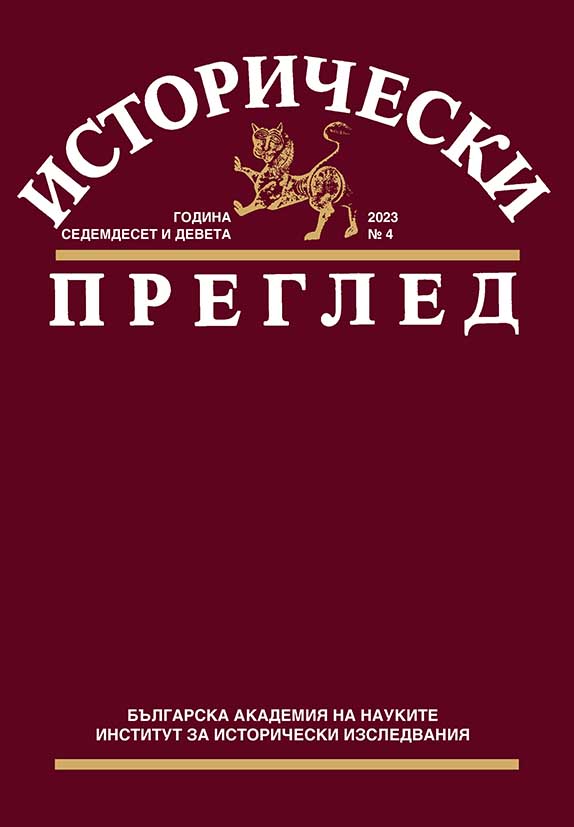
Public opinion about certain social, economic and political processes of the past has been largely shaped by fictions and myths. Aleko Konstantinov is among the most influential authors of Bulgarian literary classics. His popular character Bay Ganyo is a symbol of negative characteristics, which have contributed to the formation of negative attitude of Bulgarians towards the market economy and towards entrepreneurs. The authors attempt to prove that Aleko Konstantinov did not know the specifics of the export trade with rose oil from the end of the 19th century and because of this he transferred the repulsive personal characteristics of Bay Ganyo to a business activity that actually had the potential to help overcome them.
More...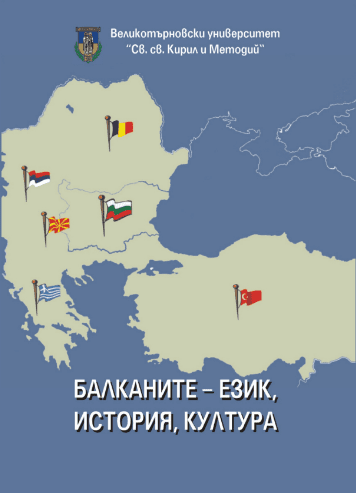
The article presents the process of teaching Bulgarian language and literature. It identifies the main objectives, approaches and problems in teaching this subject at the contemporary stage in the Republic of Moldova. In the process of teaching Bulgarian language and literature, the linguistic approach is a priority, as it is one of the most effective approaches aimed at developing and improving the abilities and skills for the realization of intercultural communication by studying language as a cultural phenomenon.
More...